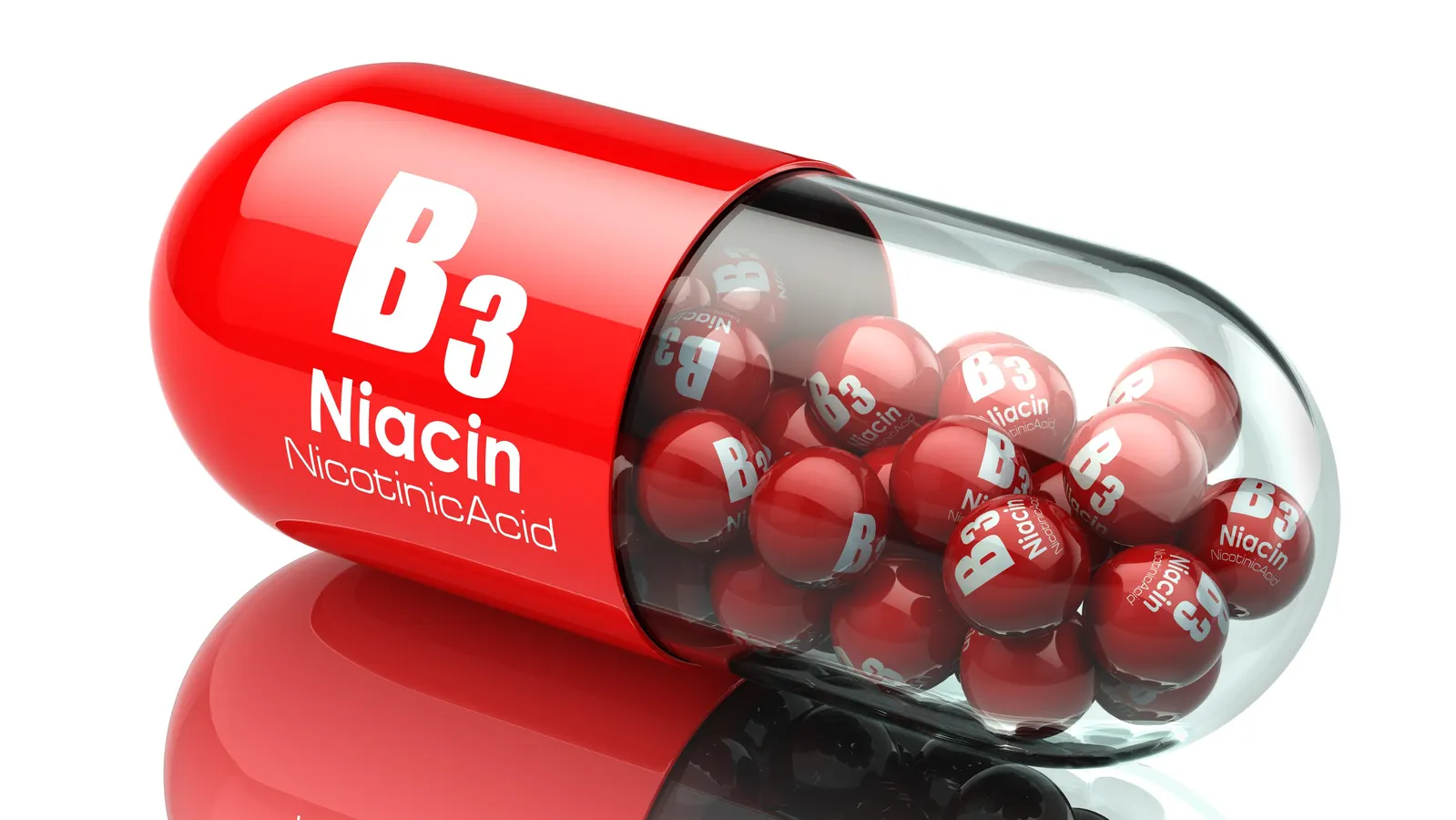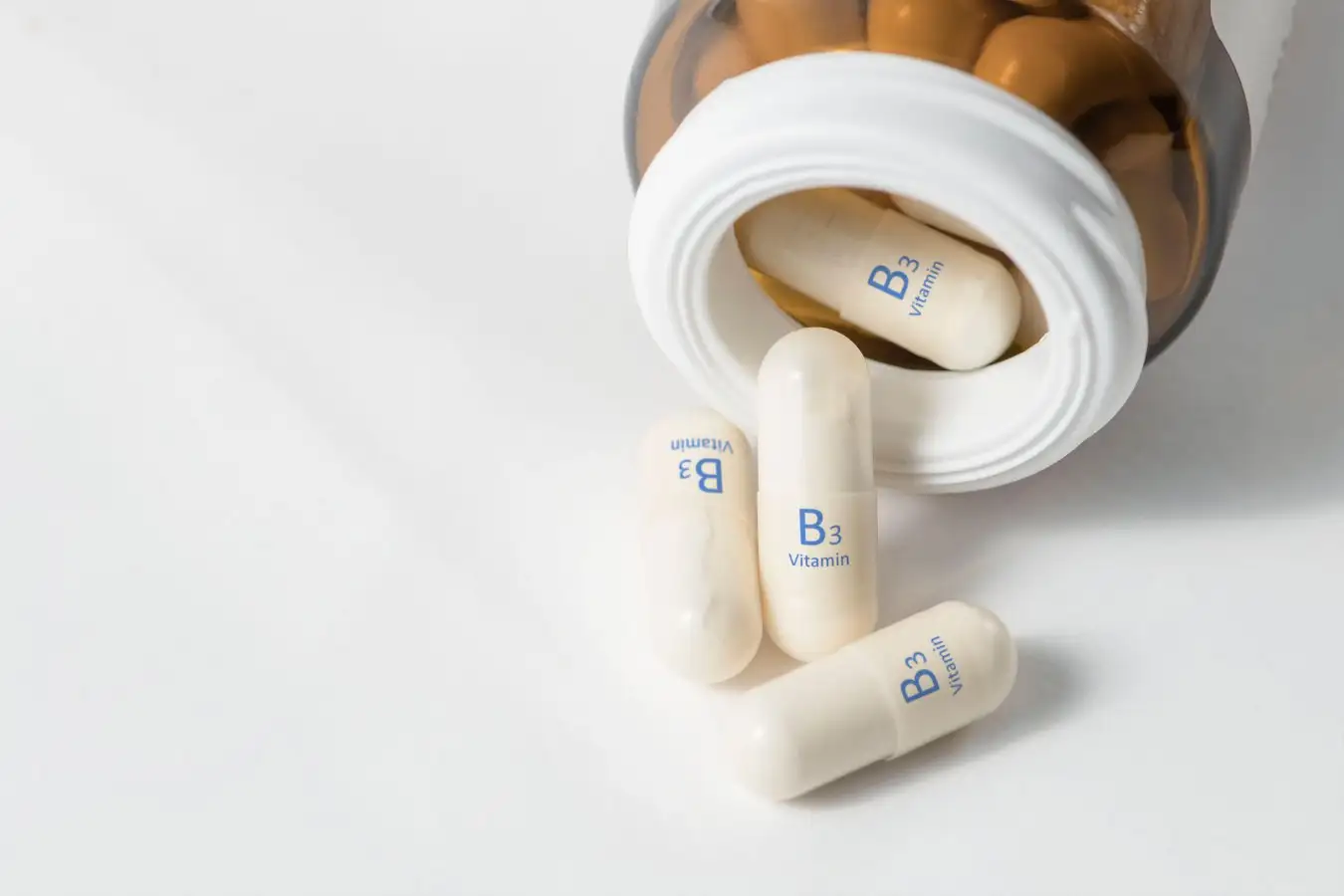High levels of niacin, a vital B vitamin, may increase the risk of heart disease by causing inflammation and damaging blood vessels, according to recent research.
The findings, published Monday in Nature Medicine, revealed a previously unknown danger associated with excessive niacin intake, commonly found in foods such as meat, fish, nuts, and fortified cereals and breads.
The recommended daily allowance of niacin is 16 milligrams for men and 14 milligrams for non-pregnant women.
“About 1 in 4 Americans exceeds the recommended niacin level,” noted Dr. Stanley Hazen, senior author of the study and chair of cardiovascular and metabolic sciences at the Cleveland Clinic’s Lerner Research Institute.
Currently, the precise threshold between beneficial and harmful niacin amounts remains unclear and requires further investigation.
“Now that we have reason to believe that excessive niacin intake may raise the risk of cardiovascular disease, the average person should avoid niacin supplements,” cautioned Hazen.
Historically, since the 1940s, flour, grains, and cereals have been fortified with niacin to prevent pellagra, a potentially fatal condition caused by severe niacin deficiency.
Before cholesterol-lowering statins became available, doctors prescribed niacin supplements to improve cholesterol levels.
To uncover novel risk factors for cardiovascular disease, Hazen and colleagues conducted a multifaceted study analyzing fasting blood samples from 1,162 patients evaluated for heart disease at a cardiology center. Their goal was to identify common markers indicating new risk factors.
Their research led to the identification of a substance produced only when niacin levels are excessive in the blood.

This discovery prompted two additional validation studies involving 3,163 adults with or at risk of heart disease, conducted in the U.S. and Europe.
These studies demonstrated that a niacin breakdown product, 4PY, predicted participants’ future risk of heart attack, stroke, and death.
In the final phase of the study, experiments on mice injected with 4PY showed increased inflammation in their blood vessels.
Dr. Robert Rosenson, director of metabolism and lipids at the Mount Sinai Health System, described the results as “fascinating” and “important.”
He highlighted the potential for this newly identified pathway to lead to the development of medications that reduce blood vessel inflammation and lower the incidence of major cardiovascular events.
Rosenson suggested that the food industry should reconsider the use of niacin in products like bread. “Too much of a good thing can be a bad thing,” he cautioned.
The newfound insights may influence dietary guidelines concerning niacin, Rosenson added.
Dr. Amanda Doran, assistant professor of medicine at the Vanderbilt University Medical Center, remarked on the study’s significance, noting that while cholesterol has long been recognized as a major contributor to heart disease, the role of niacin in promoting inflammation was unexpected.
Doran emphasized the study’s comprehensive approach involving clinical data, genetic insights, and animal experiments.
She expressed optimism about the potential of this research to pave the way for strategies that mitigate blood vessel inflammation and its consequences.
“It’s a very exciting and promising development,” Doran concluded.
